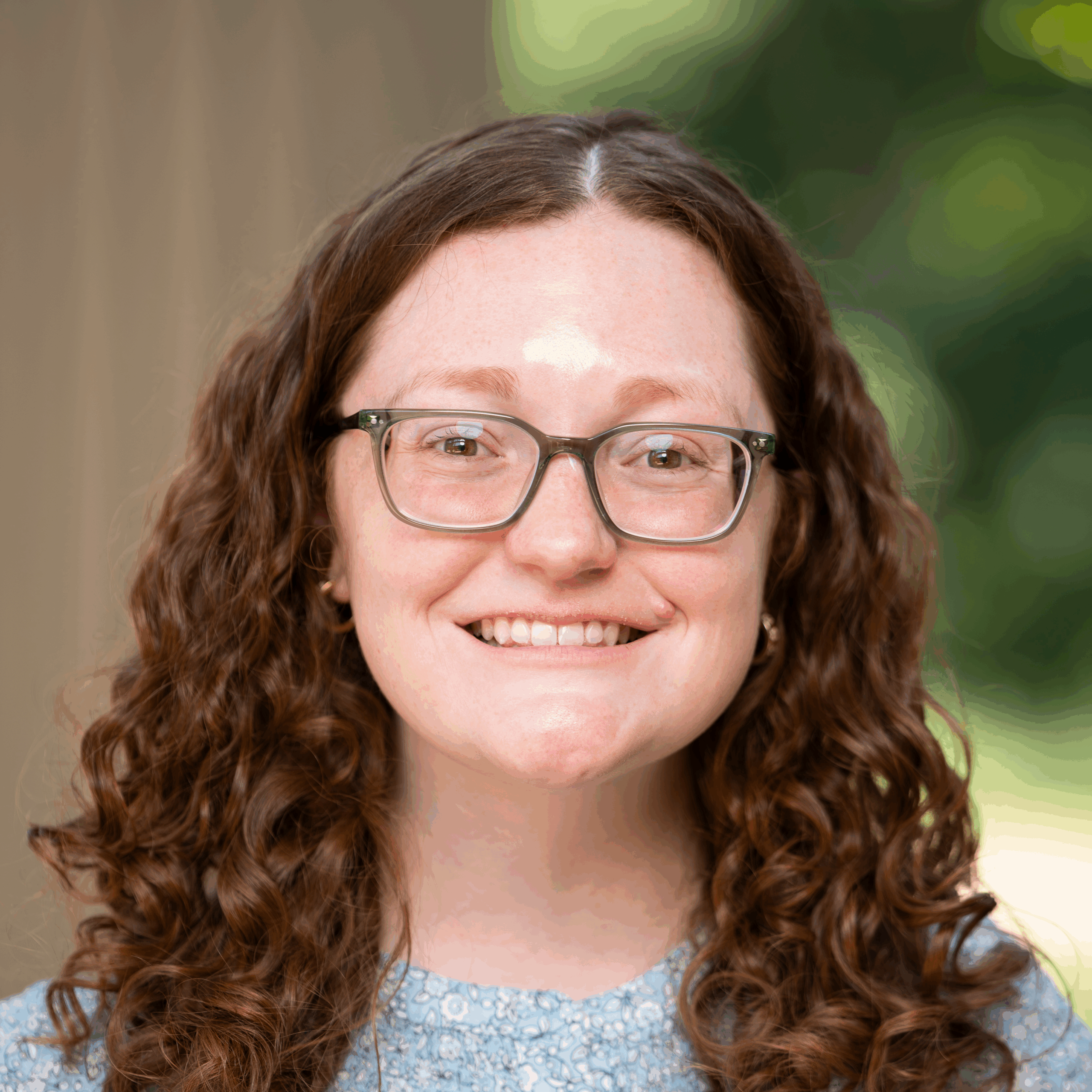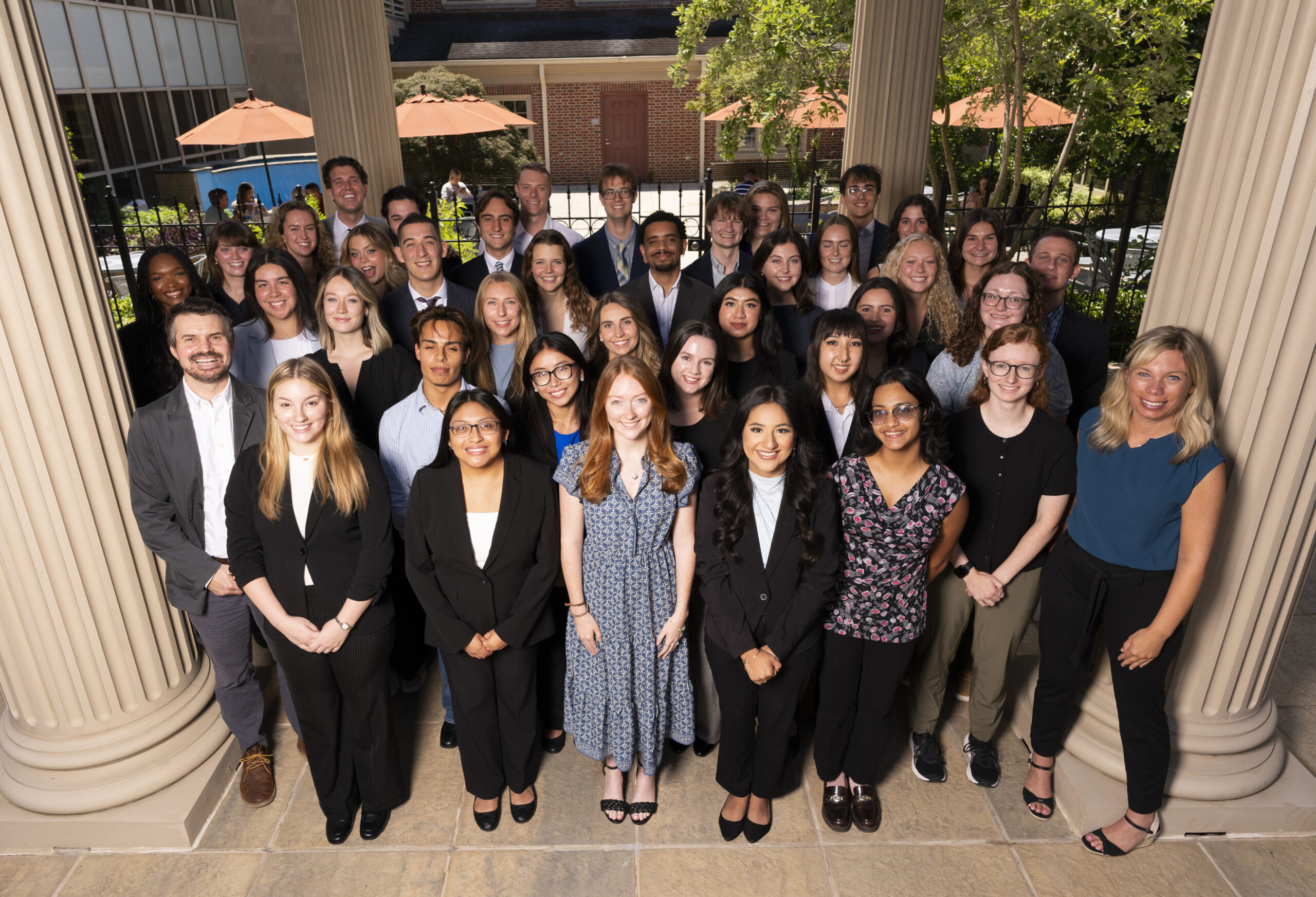
Become a fellow
Ready to kickstart your future in public service? Your goals are within reach with a fellowship through Lead for North Carolina (LFNC) at the University of North Carolina at Chapel Hill.
Becoming a fellow
Lead for North Carolina recruits, trains, and places promising young leaders in paid, full-time local government fellowships. We are a program of the UNC School of Government, connecting our fellows to one of the nation’s best public universities.
1Select host governments
Local governments apply to host a fellow in their organization. LFNC prioritizes finding local governments hosts that provide strong support, mentorship, and meaningful projects for our fellows.
2Select student and recent graduates
LFNC recruits outstanding and diverse college students and recent graduates who have demonstrated a commitment to public service. Lead for North Carolina seeks applicants with a demonstrated commitment to public service and strong connections to the state. Our screening process is rigorous and designed to ensure that each cohort is a great fit for the fellowship.
3Train and support fellows
Selected fellows join a three-week Summer Training Academy before their fellowship begins. This academy training from School of Government faculty and staff. Fellows participate in case studies, make group presentations, and produce communication for evaluation from School faculty.
4Serve communities and organizations
Lead for North Carolina is designed to meet the specific needs of the jurisdictions in which our fellows work. Fellows work on a broad range of meaningful projects including economic development, environmental sustainability, citizen engagement, recovery and resiliency, infrastructure, and more.
5Prepare fellows to become public service leaders
Our alumni use their fellowship to reach their personal, professional, and academic goals. They may work in local and state government or attend graduate, law, or medical school. Regardless of their career path, LFNC alumni are well-positioned to further their public service aspirations.
The timeline
- January: Applications open for local government host sites. Applications are due by March 6, 2026. Host site commitments are due by the end of March 2026.
- February: Applications open for prospective fellows. Applications are due by April 10, 2026.
- April: Prospective fellows interview with current fellows, program alumni, and UNC School of Government faculty and staff.
- May: Local governments interview incoming fellows for positions. Following interviews, fellows are matched with local governments for the upcoming fellowship cycle.
- June: If needed, local governments assist fellows with identifying and securing housing.
- July: Summer Academy for fellows takes place at the School of Government. The 2026 – 2027 Cohort 8 Summer Academy will take place from July 8th to July 24th.
- August: Fellows begin a year of service in their host jurisdiction.
FAQ for prospective fellows
Please email Liam Hysjulien (liam@sog.unc.edu) or Dylan Russell (russell@sog.unc.edu) for additional information.
The School of Government provides initial training to the fellows, followed by ongoing support for both fellows and host governments throughout the course of the fellowship. Prior to the start of their fellowship, fellows participate in up to three weeks of graduate-level training hosted by the School. Through this Summer Academy, fellows build on leadership, communication, and presentation skills while increasing their knowledge about economic development, emergency management, capital finance, and budgeting. The training requires fellows to participate in case studies, deliver group presentations, and produce memos for evaluation by School faculty. Participation in the Summer Academy and all subsequent training is required as part of the program. Absences are not permitted.
We often look for opportunities to engage the fellow’s supervisor and colleagues in our training model. The School provides quarterly trainings to host site supervisors and fellows. Additionally, fellows participate in weekly Zoom calls as well as advanced training on a selected topic around the six-month mark of the fellowship.
Fellowship candidates submit applications by late April. Shortly thereafter, candidates advancing to the semi-finalist round will interview with School of Government faculty and staff. In May, candidates advancing to the finalist round will interview with host governments. Fellowship offers are typically extended to fellows by mid-June. The Lead for North Carolina Summer Academy takes place in July; all fellows must attend the entire training. Fellows begin their year of service in early August.
Lead for North Carolina is funded by the participating local governments, donors and sponsors, and the UNC School of Government. Our funders include: AmeriCorps, SECU Foundation, Z. Smith Reynolds Foundation, Anonymous Trust, State Farm, and private philanthropists. Atlhough all participating local governments are expected to provide funding, LFNC typically provides subsidies to governments in economically distressed communities.
COVID-19 and other post-pandemic legislation brought an unprecedented amount of federal funding to local governments. This level of investment has not been seen since the Great Depression. Many local governments need help to spend this money strategically, ensure compliance, and promote a long-term strategic vision for their communities.
Here are some reasons why you should consider a career in local government finance…
- Variety of work: Local government finance is a multifaceted field that involves policy making, financial management, budgeting, forecasting, financial reporting, and compliance. There is always something new to learn, and every day presents new challenges.
- Job stability: Local government finance provides a stable career path with a high demand for professionals. Governments will always need people to manage finances, no matter the economic situation. If you’re looking for stability and a quick path to leadership, local government finance is the way to go.
- Opportunity for growth: Local government finance offers opportunities for growth, development, and advancement. You can start as a budget analyst and work your way up to a finance director or even a city manager in a relatively short amount of time! Want to pivot sectors? The skillset you develop in local government finance will prove valuable across sectors.
- Social impact: Working in local government finance provides you with an opportunity to make a positive impact on your community. Your work helps to allocate resources to provide essential services such as healthcare, environmental resiliency, public safety, and education.
Past fellows have pursued a variety of post-program paths. Many have enrolled in graduate programs in public administration, public policy, or law, while others have pursued careers in the nonprofit sector. Still more have elected to stay in their host communities.
For example, fifty percent of fellows from the 2022-23 fellowship year received a job offer from their host government. Those students who did not stay at their organization went on to receive competitive scholarships from top-ranked graduate programs at Duke University, UNC-Chapel Hill, Georgetown University, University of Virginia, and other schools.
Lead for North Carolina is the first state affiliate of Lead for America. As a state affiliate, we share the common mission of placing young future public sector leaders in local government positions. Lead for North Carolina works closely with Lead for America, LFNC is administered and operated by the UNC School of Government.
The School is responsible for the local government recruitment, fellow recruitment, fellow training and support, and program administration in North Carolina. The School has invested significant resources to ensure Lead for North Carolina’s success. The program was designed by a small group of faculty and staff members and has a program team dedicated to maintaining operations.
LFNC is designed to meet the needs of the host jurisdiction, which means the scope of work varies across jurisdictions. During pre-fellowship summer training, the manager and fellow co-create a workplan to meet the fellow’s professional development goals and the jurisdiction’s needs. Our fellows have worked on the following projects:
- Grant research and procurement
- ADA compliance
- Broadband access
- Economic development
- Citizen engagement initiatives
- Strategic communication plans
- Emergency response plans
- Policy briefs on technical subjects
- Environmental sustainability
- Community health initiatives
- Hurricane recovery and resiliency
- Language translation to increase access to government services
- Intergovernmental relations
- Interjurisdictional collaboration
- Infrastructure projects
- Utilities projects
- Event planning
Each host government must commit to meeting these requirements to participate.
- Supervise the fellow, which includes assigning a direct supervisor who will provide regular feedback and conduct quarterly performance assessments and review. (The fellow will be employed by UNC-Chapel Hill.)
- Abide by UNC-Chapel Hill policies and AmeriCorps policies and procedures.
- Identify specific projects and/or a scope of work for the fellow to perform during the fellowship period. This scope should include a mix of short- and long-term projects.
- Identify one or more mentors to help the fellow integrate into the workplace and become a productive colleague.
- Conduct weekly check-ins with the fellow.
- Provide meaningful training and professional development opportunities and allow the fellow to participate in any required LFNC trainings.
- If needed, assist the fellow in locating reasonable rental housing.
- Keep the LFNC program team informed of any issues with the fellow or fellowship.
- Comply with any data collection requirements of the program.
Once LFNC has a firm commitment from the host governments, we actively recruit a diverse pool of young leaders from public and private universities to fill those fellowship positions. LFNC focuses on recruiting public service-minded individuals, and in many cases, the program provides an opportunity or young leaders to return to their hometowns to serve their communities.
Fellows must complete a detailed and rigorous screening process to ensure a final pool of high-quality applicants. These individuals have demonstrated a commitment to public service, a strong interest in the local government profession, and a record of exemplary personal character. Managers or hiring directors from the host jurisdictions are invited to interview a select pool of fellows, many of whom may have connections to the region in which the local government is located. This virtual interview process takes place in late spring. LFNC finalizes employment contracts between selected fellows and governments in mid-June each year.
Each fellow receives the following compensation and benefits:
- Living allowance of $35,000 distributed over an 11-month contract
- Health insurance through the CorpsNetwork
- Segal AmeriCorps Education Award of $7,300, which may be used to finance graduate education or pay back qualified student debt
- Student loan deferment and interest forbearance
- My AmeriCorps membership, providing access to free legal counsel, therapists, financial advisors, life coaches, and more
- AmeriCorps and Lead for North Carolina alumni network access
Is this the right opportunity for me?
If you answered “YES” to these questions, we’re ready to partner with you. Use our interest form to connect with our team.
News

Maria Cuenca-Romero is driven by a genuine desire to give back, turning her passion for public service into meaningful change for the communities she serves. After attaining a bachelor’s degree…
News

In Clayton, numbers show how resources support services and meet residents’ needs. Each figure in the budget provides insight into how departments operate and how programs are funded, creating a…
News

By Andy Bradshaw The School of Government is pleased to share the continued work of Lead for North Carolina Fellows. As the western region of the state continues to respond to the…

